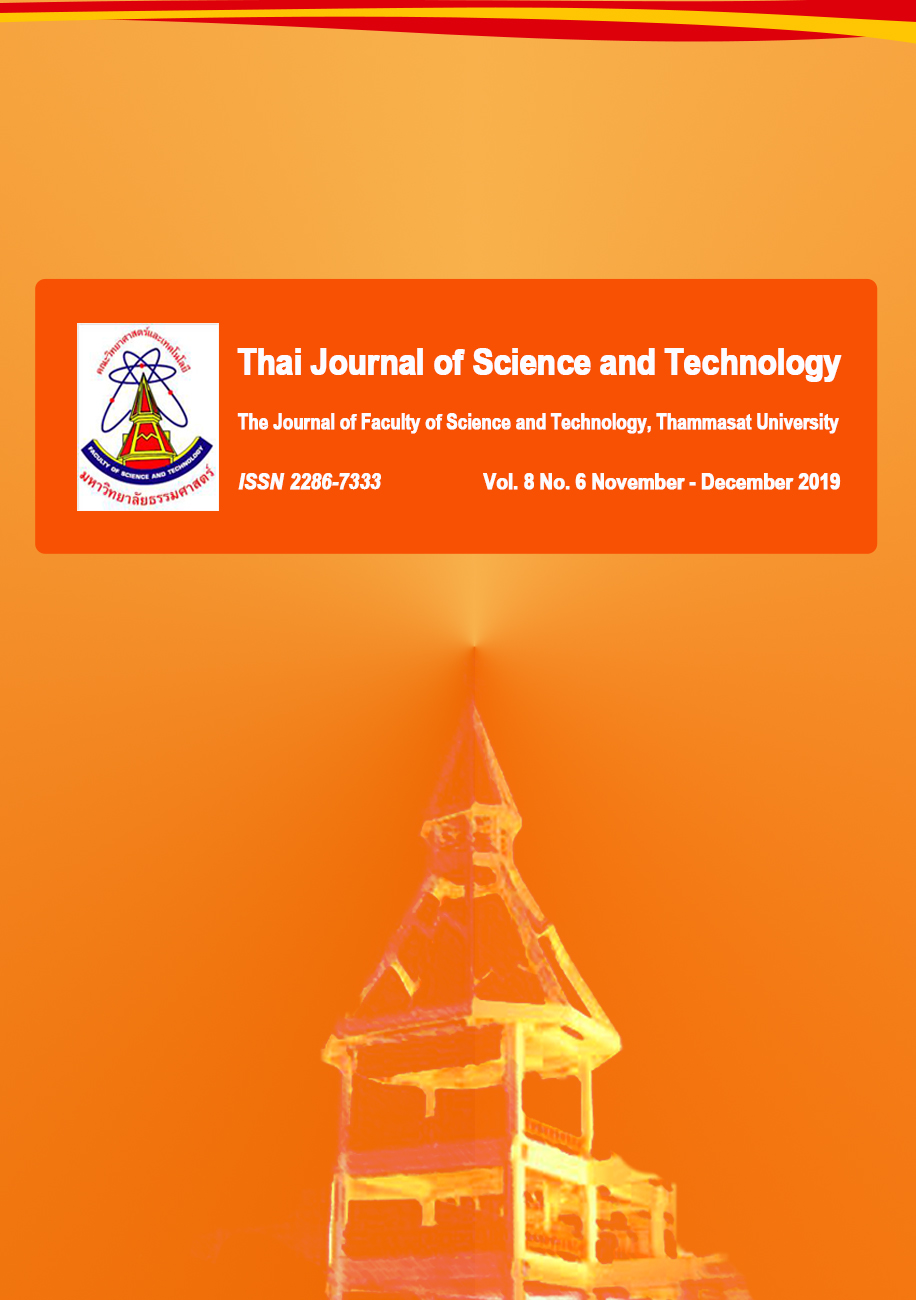แนวทางการสร้างความจงรักภักดีต่อการท่องเที่ยวเชิงอาหารของประเทศไทยผ่านคุณค่าเชิงประสบการณ์
Main Article Content
Abstract
Abstract
This research is a quantitative research to study factors and the proposed ways to create loyalty guidelines for culinary tourism in Thailand through experiential value. Data were collected from the target samples (400 European tourists traveling to Thailand those were interested in Thai food or participated in Thai food activities at least 1 time per trip), by using questionnaires. The results of simple and multiple regression analyses showed that experiential value influences the loyalty of culinary tourists in Thailand. The consumer return on investment (CROI) has the highest positive influence. Therefore, the guidelines for creating loyalty to culinary tourism in Thailand through experiential value are aimed at creating the most effective of CROI factors. Suggestions from this research study are followings; (1) government agencies or agencies in the tourism industry of Thailand should make standards to control the price of Thai food sold to foreign tourists fairly for creating a positive image of Thai food, (2) agencies related to tourism promotion should aim to promote the image of Thai food that is creative with a memorable feeling, (3) private sector, restaurant operators should develop cleanliness and neatness of restaurants and employees, and (4) education sector can apply the guidelines to create experiential values for future studies especially the CROI factors creating.
Keywords: loyalty; culinary tourism; experiential value
Article Details
บทความที่ได้รับการตีพิมพ์เป็นลิขสิทธิ์ของคณะวิทยาศาสตร์และเทคโนโลยี มหาวิทยาลัยธรรมศาสตร์ ข้อความที่ปรากฏในแต่ละเรื่องของวารสารเล่มนี้เป็นเพียงความเห็นส่วนตัวของผู้เขียน ไม่มีความเกี่ยวข้องกับคณะวิทยาศาสตร์และเทคโนโลยี หรือคณาจารย์ท่านอื่นในมหาวิทยาลัยธรรมศาสตร์ ผู้เขียนต้องยืนยันว่าความรับผิดชอบต่อทุกข้อความที่นำเสนอไว้ในบทความของตน หากมีข้อผิดพลาดหรือความไม่ถูกต้องใด ๆ
References
เณรัญชรา กิจวิกรานต์, 2557, ภาพลักษณ์อาหารไทย การรับรู้คุณภาพอาหารไทยและแนวโน้มพฤติกรรม การท่องเที่ยวเชิงอาหารของนักท่องเที่ยวชาวต่างชาติ, ว.วิชาการการท่องเที่ยวไทยนานาชาติ 10(1): 12-28.
ดวงพร ทรงวิศวะ, 2559, การจัดบริการอาหารในสถาบัน, มหาวิทยาลัยสุโขทัยธรรมธิราช, นนทบุรี.
พิมพ์ระวี โรจน์รุ่งสัตย์, 2556, ความสำคัญและกิจกรรมสื่อสารเรียนรู้จากการท่องเที่ยว “อาหาร” สำหรับนักท่องเที่ยวกลุ่มตลาดผู้หญิงชาวต่างประเทศของไทย, ว.การบริการและการท่องเที่ยวไทย 8(1): 61-72.
โพสต์ทูเดย์, “กินเที่ยวทริปเดียวกัน” ทริปสุดฟินนักเที่ยวสายกิน, แหล่งที่มา : https://40plus.posttoday.com/eatandtrip/9683, 26 เมษายน 2561.
ภัทรพร พันธุรี, 2558, การจัดกิจกรรมการท่องเที่ยวเชิงอาหาร โดยผ่านประสบการณ์ของนักท่องเที่ยวในประเทศไทย, รายงานวิจัย, สำนักงานบริหารการวิจัย วิทยาลัยเทคโนโลยีภาคใต้, นครศรีธรรมราช.
สำนักงานปลัดกระทรวงการท่องเที่ยวและกีฬา, รายงานภาวะเศรษฐกิจท่องเที่ยว ฉบับที่ 4. แหล่งที่มา : https://www.mots.go.th/ewt_dl _link.php?nid=7789, 26 เมษายน 2561.
Aziz, S.A., Musa, R. and Rahman, S.A., 2016, Theorizing islamic retail experiential value in predicting total islamic experience quality: A hypothesised model, Proc. Econ. Finance 37: 453-459.
Baltescu, C.A., 2016, Culinary Experiences as a Key Tourism Attraction, Case Study: Braşov County (C.A. BĂLtescu, Trans. Vol. 9), Faculty of Economic Science, Transilvania University of Braşov, Braşov.
Cetin, G., Akova, O. and Kaya, F., 2014, Components of experiential value: Case of hospitality industry, Proc. Soc. Behav. Sci. 150: 1040-1049.
Chua, B.L., Jin, N., Lee, S. and Goh, B., 2014, Influence of mechanic, functional, and humanic clues on customers’ experiential values and behavioral intentions in full-service restaurants, J. Foodserv. Bus. Res. 17(2): 67-84.
Holbrook, M.B., 1994, Service Quality: New Directions in Theory and Practice, SAGE Publications, Inc., Thousand Oaks, California.
Kisang, R., Han, H. and Jang, S., 2010, Relationships among hedonic and utilitarian values, satisfaction and behavioral intentions in the fast-casual restaurant industry, Int. J. Contemp. Hosp. Manage. 22: 416-432.
Manthiou, A., Kang, J., Chiang, L. and Tang, L., 2015, Investigating the effects of memorable experiences: An extended model of script theory, J. Travel Tour. Mark. 33: 362-379.
Mathwick, C., Malhotra, N. and Rigdon, E., 2001, Experiential value: Conceptualization, measurement and application in the catalog and Internet shopping environment, J. Retail. 77(1): 39-56.
McKercher, B. and Ho, P.S.Y., 2006, Assessing the tourism potential of smaller cultural and heritage attractions, J. Sustain. Tour. 14: 473-488.
Tsai, C.T. and Wang, Y.C., 2017, Research paper: Experiential value in branding food tourism, J. Destin. Mark. Manage. 6: 56-65.


